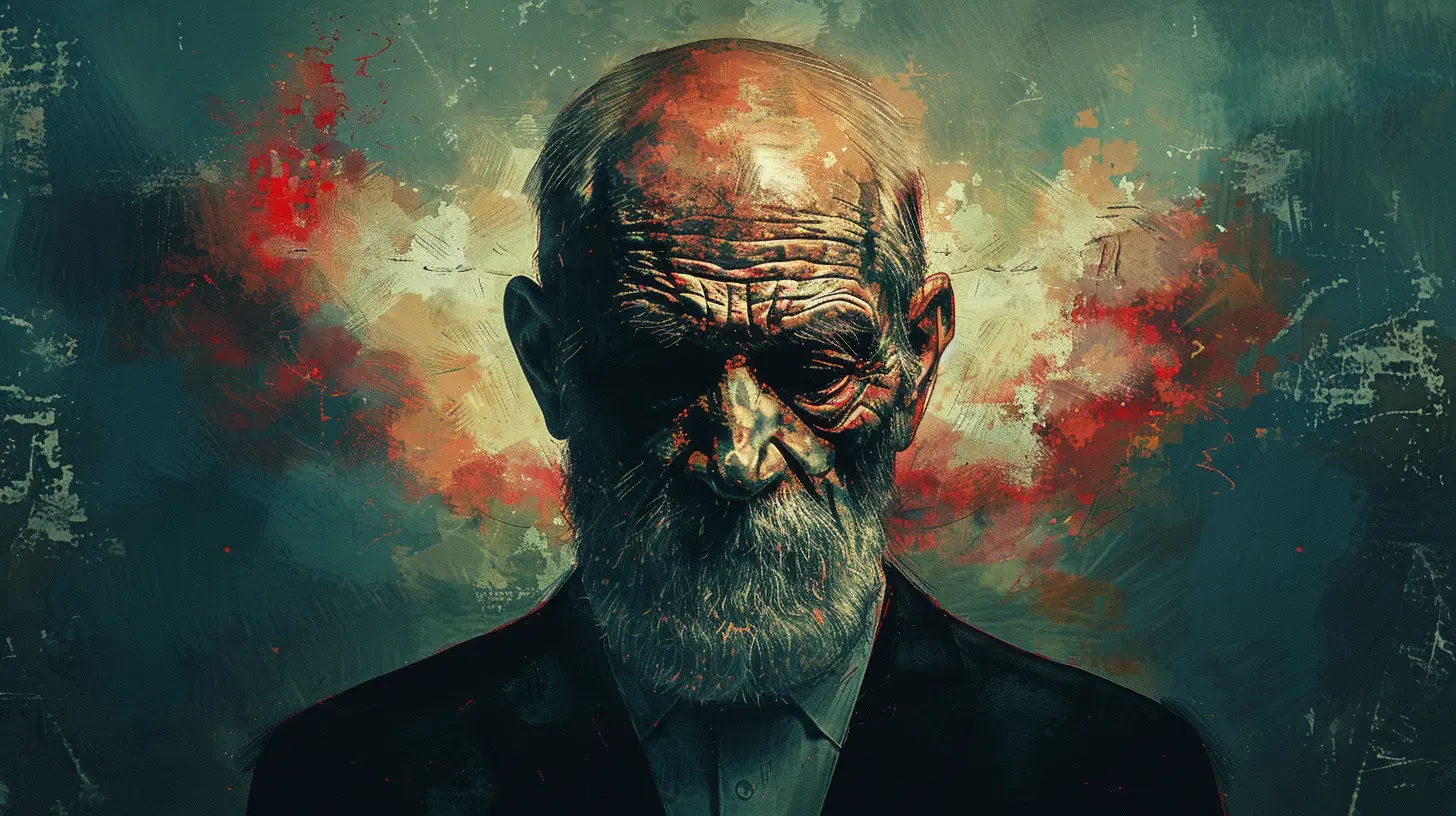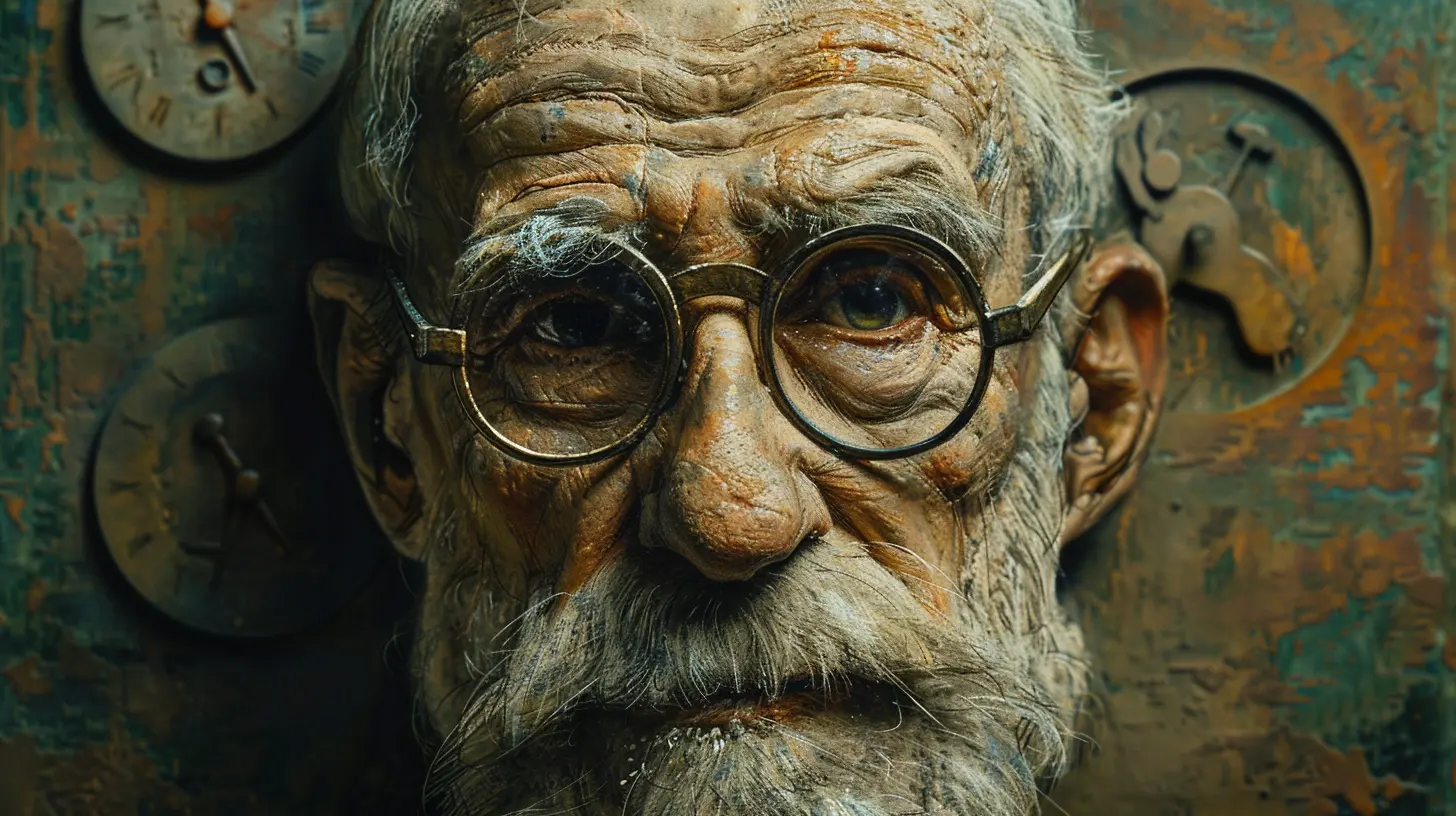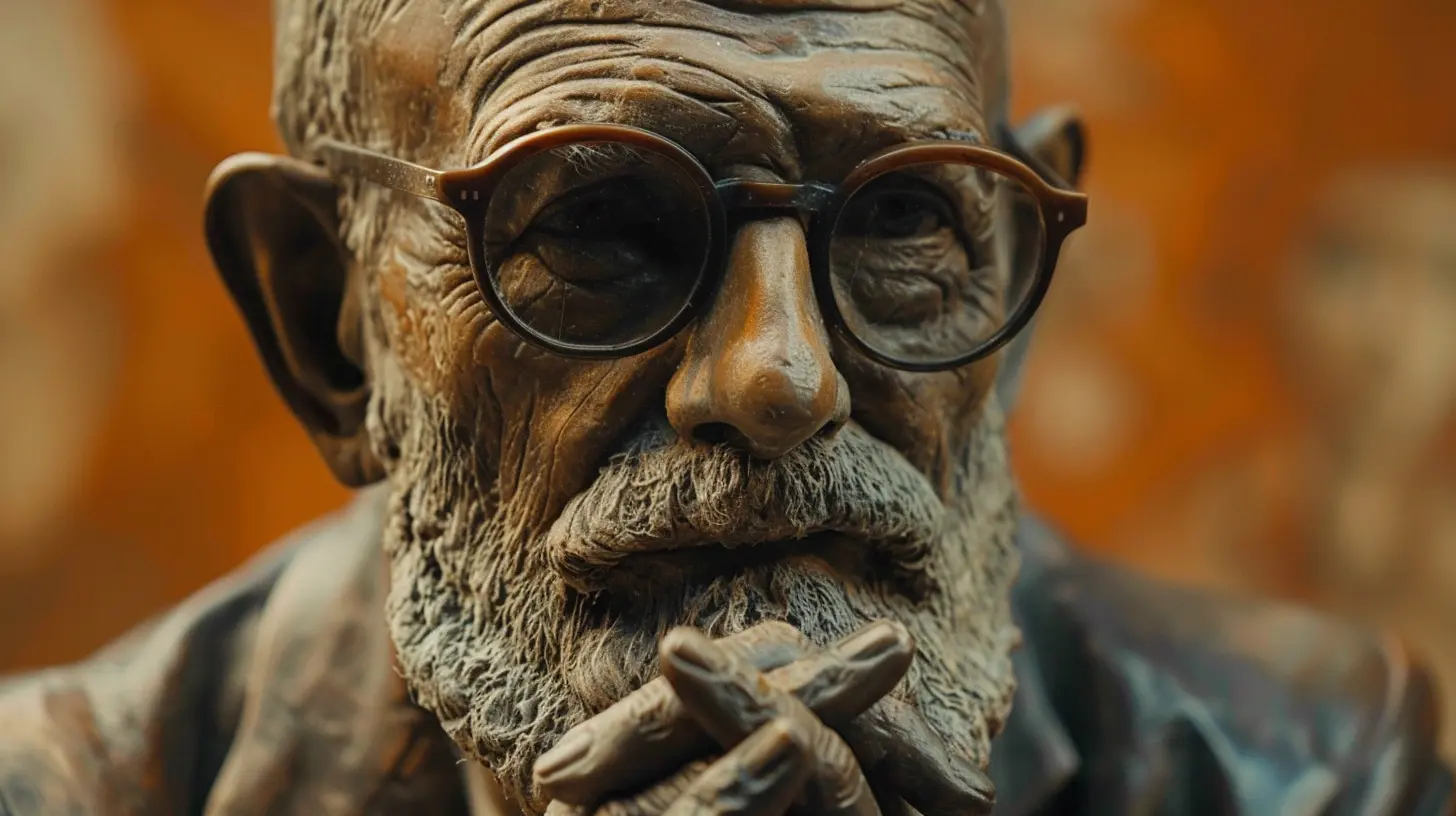Psychoanalysis in the Modern World: Does Freud Still Matter?
19 June 2025
Let’s be honest: when you hear the word "psychoanalysis," your brain probably jumps straight to a couch, a bearded man with round glasses, and someone muttering about dreams involving their mother. Yep, we’re talking about Sigmund Freud – psychology’s most famous (and possibly most misunderstood) figure.
But in a world dominated by TikTok therapy, instant gratification, and self-diagnosing via memes, does Freud still have a seat at the table? Or has the father of psychoanalysis become the weird uncle everyone avoids at family gatherings?
Grab your symbolic cigars, folks. We’re diving deep (like, unconscious mind deep) into Freud’s legacy in today’s fast-paced psychological landscape. It's going to get weird. And maybe a little awkward. But that’s exactly how Freud would like it.
🧠 A Quick Crash Course: What Even IS Psychoanalysis?
First things first, let’s unpack what psychoanalysis actually is—without the jargon that sounds like it came from a Victorian ghost story.Psychoanalysis is a theory and therapeutic method developed by Freud in the late 19th century. The basic idea? Our behaviors, thoughts, and feelings are heavily influenced by unconscious motives. Translation: your brain is basically an iceberg, and most of your inner stuff is hiding below the surface.
Freud said we’re driven by primal desires (thanks, Id), internalized morals (hello, Superego), and a confused mediator who just wants everyone to get along (that’d be the Ego). Mix that with a heavy dose of childhood trauma, repressed desires, and dream symbolism, and voilà! You have classic Freudian psychoanalysis.
But does that still hold up in 2024?
🧐 Freud vs the Instagram Therapist: A Modern Showdown
Let’s set the stage for a therapy-themed WWE match (minus the folding chairs).In one corner, we’ve got Freud—old school, long-winded, obsessed with dreams and mothers. In the other corner? The modern-day therapist influencer: short videos, self-affirmations, and CBT worksheets downloadable on your phone.
Now, the question is: are Freud’s methods still relevant, or is he just the awkward guy in the group chat who keeps bringing up Oedipus complexes?
Turns out… it's complicated.
🔍 What Freud Got Right (Yes, He Actually Did)
Before you toss Freud into the psychological junk drawer, let's give the guy some credit. Despite being a 19th-century dude with a penchant for cigars and bizarre dream theories, he did have a few valid insights.1. The Unconscious Mind Is Kinda a Big Deal
Freud's biggest flex was pushing the idea that not all thoughts are conscious. And guess what? Modern neuroscience backs that up. Our brains are doing a lot behind the scenes, from processing emotions to making snap decisions.You might not be dreaming about kissing your mother (Freud, chill), but there's definitely a hidden part of you shaping your choices—like why you always date people who ghost you or why you compulsively buy things during emotional breakdowns.
2. Childhood Experiences Shape Us
Freud was that guy constantly talking about turbulent childhoods. And while his theories about psychosexual stages were, uh, a bit much (oral stage, anyone?), the core idea that early life experiences affect adult behavior still stands strong.Modern attachment theory? Inner child work? Trauma-informed therapy? All those ideas owe a tip of the hat to Freud.
3. Talk Therapy is Therapeutic (Well, Duh)
The whole “lie on my couch and tell me everything” thing? That came from Freud. He introduced the idea that simply talking about your problems with someone who listens (and doesn’t interrupt with “vibes only!”) can help you heal.He called it “free association.” These days, we just call it a good therapy session. Or a late-night wine-fueled convo with your best friend. But hey — same idea.
🙄 And What He Totally Got Wrong (Sorry, Siggy)
Now, let’s be real. Freud also dropped the psychological ball in glorious fashion more than a few times.1. The Oedipus Complex Is… A Lot
Look, we’re not even going to sugarcoat this. The idea that every little boy subconsciously wants to murder his dad and marry his mom? Freud, buddy, what kind of Thanksgiving dinners were you having?Most modern psychologists don’t take this seriously anymore. It’s not just outdated; it's downright disturbing. And frankly, it made a lot of folks unnecessarily suspicious of their own childhoods.
2. Everything Is Not About Sex
Freud was a bit too obsessed with the idea that repressed sexual desires are behind literally everything. Can’t find your keys? Sexual repression. Having a nightmare? Sexual repression. Ate too fast at dinner? You guessed it.While sexuality is obviously a part of psychology, modern science has evolved to understand that human behavior is influenced by way more than just what’s happening in your pants. Thank goodness.
3. Lack of Scientific Rigor
Freud had lots of brilliant ideas, but he wasn’t exactly a “double-blind peer-reviewed study” kind of guy. Much of his work was based on case studies (aka a few people) and subjective interpretations.So, while his theories were groundbreaking at the time, many don’t hold up under modern scientific scrutiny. Freud would probably say your criticism of his methods is just “projection,” though. Classic Freud.
🧠 The Rise of New Therapies: Freud's Legacy Gets a Makeover
Nowadays, therapy is like Netflix—there’s something for everyone.Cognitive Behavioral Therapy (CBT), Dialectical Behavior Therapy (DBT), Acceptance and Commitment Therapy (ACT), EMDR… the list goes on. These modern approaches are short-term, structured, and evidence-based.
So has psychoanalysis been completely replaced?
Not exactly.
Modern Psychoanalysis: The Evolution is Real
Psychoanalysis has evolved a lot since Freud’s days. Today’s psychodynamic therapy (which grew from Freudian roots) still focuses on unconscious processes and childhood experiences, but it’s far less rigid—and way more relatable.Modern therapists don’t assume you want to marry your parents or that every dream means you're repressing something kinky. Instead, they explore how your past influences your present, while helping you build healthier patterns.
Psychoanalysis went through a glow-up. Less Freud, more feelings.
😆 Why Freud Still Pops Up in Pop Culture
Let’s face it. Freud is the Beyoncé of psychology. You don’t have to follow academic journals to recognize his greatest hits.From movies and books to sitcoms and memes, Freud’s theories are everywhere. Anytime someone says “Tell me about your mother…” you know what’s up.
Even if his science isn’t always solid, Freud’s impact on how we think about ourselves, dreams, childhood, and therapy is undeniable. He basically coined the idea that it’s okay to overanalyze literally everything.
🛋️ Should You Try Psychoanalysis Today?
Short answer: maybe. Long answer: it depends on your vibe.Psychoanalysis (or its modern cousin, psychodynamic therapy) can be extremely powerful if you're into deep self-reflection and long-term work. Think emotional excavation with a side of identity crisis. But hey, that’s how the magic happens, right?
If you want quick results or structured strategies, you may prefer CBT or coaching-based models. But if you’re intrigued by the idea that your childhood pet dying is why you fear commitment today... Freud's your guy.
🤷 So, Does Freud Still Matter? Final Thoughts
Alright, let’s land this psychological plane.Freud—the man, the myth, the meme—still casts a long shadow in modern psychology. While some of his ideas are totally outdated (and some are just straight-up weird), many planted the seeds for the therapies helping people today.
He’s like the weird but visionary great-grandparent of modern therapy. Not always politically correct, occasionally unsettling, but undeniably influential.
So yes, Freud still matters. Just… maybe not in the way he wanted to.
Would he frown at your modern therapist’s worksheet on mindfulness? Probably. But would he also secretly be thrilled that we’re still talking about him 80 years after his death? Absolutely. Freud lives on—in your mind, your dreams, and probably in that recurring nightmare you've been ignoring.
🛎️ TL;DR (Too Long, Diagnosed Repression)
- Freud was wildly influential and introduced the unconscious mind, talk therapy, and the lasting effects of childhood.- He also got a lot wrong (lookin’ at you, Oedipus complex).
- His legacy lives on in modern therapy, especially in psychodynamic approaches.
- Freud still “matters,” just with a modern twist—and probably fewer cigar references.
Now, if you’ll excuse me, I’m off to analyze why I keep dreaming about failing math tests. Thanks, Sigmund.
all images in this post were generated using AI tools
Category:
PsychoanalysisAuthor:

Janet Conrad
Discussion
rate this article
2 comments
Kathleen Morrow
Ah yes, because nothing screams “modern” like a musty couch and the musings of a guy who thought dreams were just wish fulfillments. Freud’s theories are clearly just as relevant as using a rotary phone to tweet about your feelings. Progress, right?
December 3, 2025 at 4:53 AM

Janet Conrad
Freud's ideas may seem outdated, but they still spark valuable discussions about the unconscious and human behavior. Modern psychology often builds on or critiques his theories, showing their lasting impact.
Angie Jacobs
Freud's insights remain relevant.
June 24, 2025 at 4:52 AM

Janet Conrad
Thank you for your comment! While some aspects of Freud's theories have been challenged, many of his insights into the unconscious and human behavior continue to resonate in contemporary psychology and therapy.


